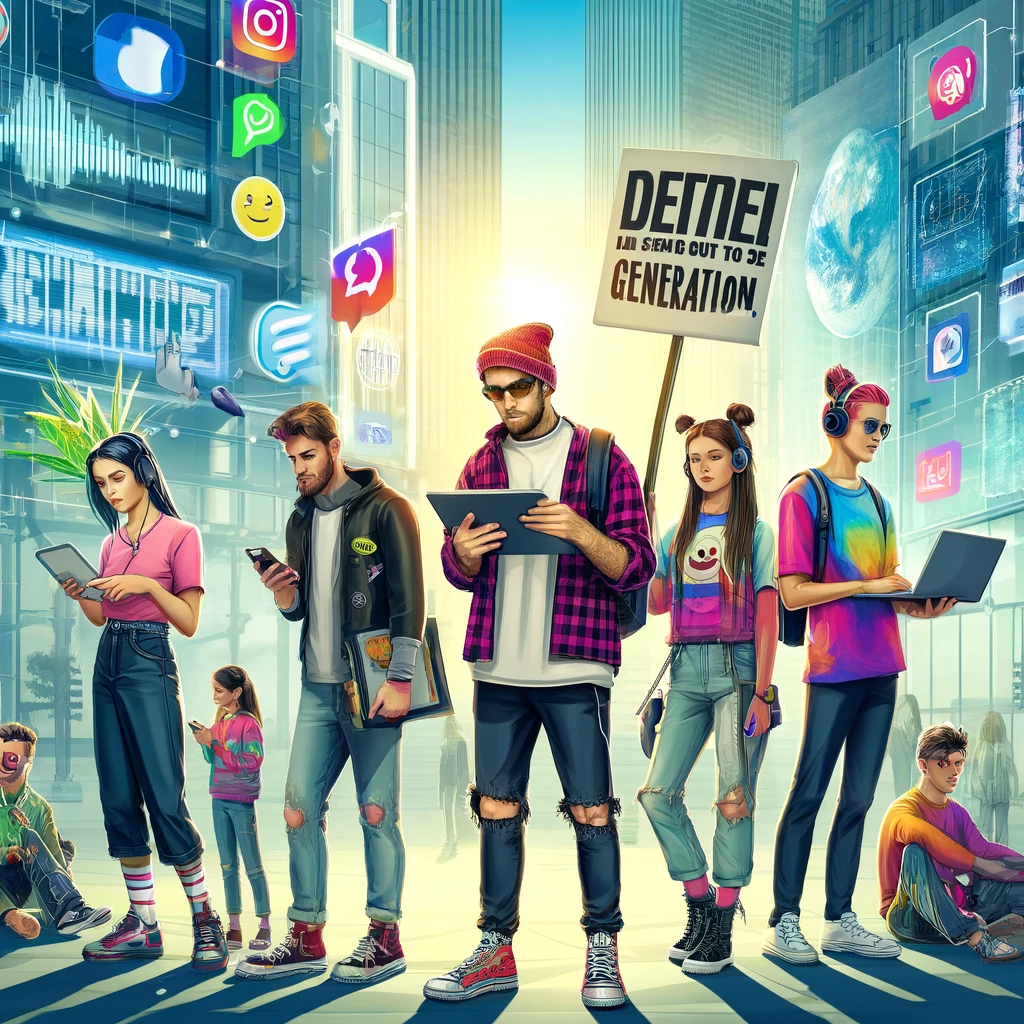
Generation Z, born from the mid-1990s to the early 2010s, is a unique cohort that distinctly marks the rapid evolution of society, technology, and culture. This generation has grown up in a world saturated with digital technology, which has fundamentally shaped their relationships, learning environments, and career outlooks. Their upbringing in the digital age means that for most of Gen Z, smartphones, social media, and instant access to information have always been a part of their lives, influencing how they interact with the world and each other.
Social media platforms, from Instagram to TikTok, are not just tools for socializing; they are arenas where Gen Z forms communities, expresses identities, and engages in political and social issues. These platforms have empowered them to voice their opinions and mobilize quickly around causes they care about, such as climate change, mental health awareness, and social justice. This has contributed to their reputation as a socially conscious and politically active generation.
Education for Gen Z has also been notably different from that of previous generations. The integration of technology in classrooms, the accessibility of online learning resources, and the rise of e-learning platforms have provided them with a variety of learning modalities. These tools have tailored education to be more flexible and accessible, although they also pose challenges such as the digital divide and concerns over data privacy and screen time.
In the workforce, Gen Z enters with a different set of expectations and values compared to their predecessors. They look for diversity, inclusivity, and flexibility in their working environments. Their career choices are often influenced by a desire for job security, influenced by growing up during the economic uncertainties of the late 2000s recession and the COVID-19 pandemic. Additionally, they tend to favor careers that offer a balance between personal and professional life, reflecting a broader shift towards well-being and mental health.
Mental health is a significant concern for Gen Z, with higher reported levels of anxiety, depression, and stress compared to earlier generations. This heightened awareness and willingness to discuss mental health openly is a positive shift, though it also highlights the need for better support systems and healthcare access. The visibility of these issues, partly increased by social media, has spurred a movement towards more open discussions about mental health and well-being.
Moreover, Gen Z’s consumer habits reflect their values and the environment they grew up in. They prefer brands that are environmentally responsible, ethically produced, and transparent about their business practices. This preference influences how companies market their products and manage their corporate social responsibilities.
Despite their young age, Gen Z’s impact on society is already visible. They bring a new set of skills, perspectives, and priorities to the table, reshaping norms and expectations in every sphere from technology to politics. As they continue to mature and take on more significant roles in society, their influence is expected to grow, making them a critical demographic for future market trends, political policies, and cultural norms.
Understanding Generation Z is crucial for businesses, policymakers, and educators alike. Their unique characteristics and values necessitate adaptations in marketing strategies, educational approaches, and workplace practices. As digital natives at the forefront of technological and social change, Generation Z stands at the vanguard of the new age, ready to make their mark on the world in their own distinct way.